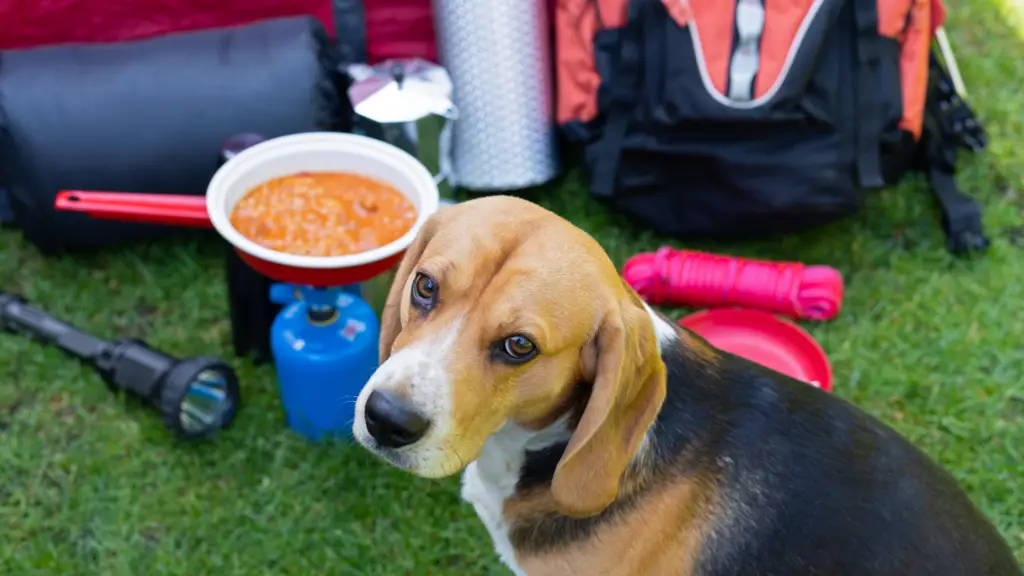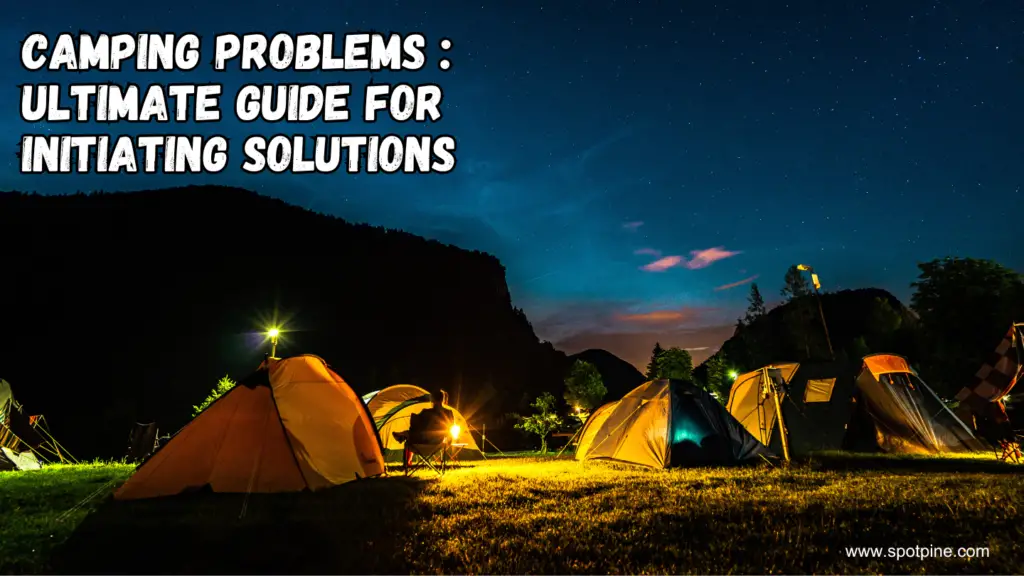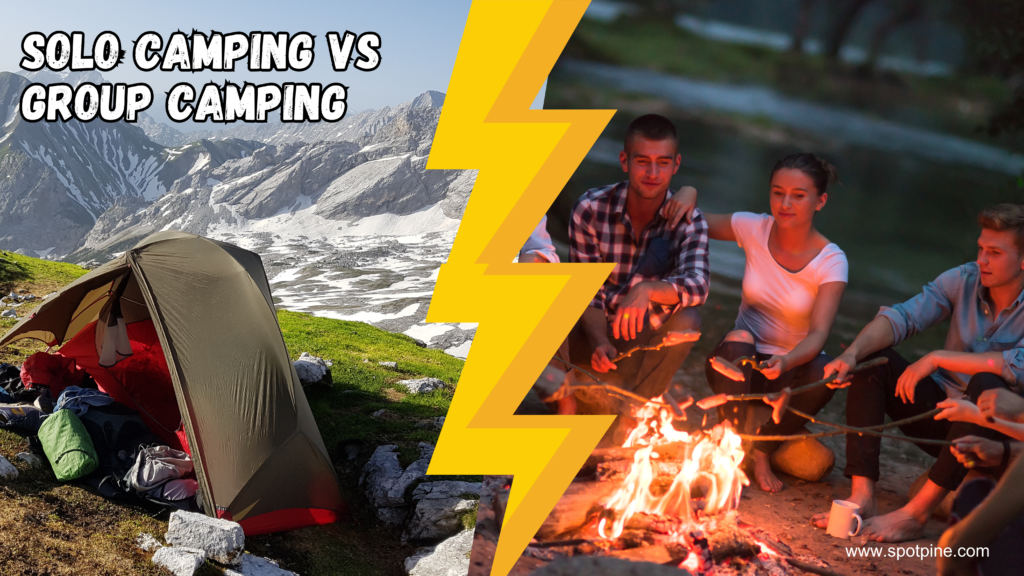For handling camping problems when things go wrong, stay calm and assess the situation before taking action. Addressing issues promptly can prevent them from escalating and ensure a smoother camping experience.
Camping can present various challenges, from unpredictable weather to difficulties setting up equipment. Being prepared and knowing how to troubleshoot common camping problems can make a significant difference in enjoying your outdoor adventure. By understanding potential hazards and having a plan in place, you can overcome obstacles and make the most of your camping trip.
Remember to prioritize safety and be proactive in addressing any issues that may arise during your outdoor excursion.
Common Camping Problems
A variety of challenges can arise during a camping trip, from unpredictable weather and difficulty setting up tents to getting lost while hiking. To handle common camping issues, it’s crucial to be prepared and resourceful, such as bringing the right gear and planning for emergencies.
Remember to stay safe and be considerate of others in the campground.
Unpredicted Bad Weather
Unpredicted bad weather can be a major camping problem. When it starts raining or storming unexpectedly, it can dampen the entire camping experience. To handle this situation, it is important to be prepared. Make sure to check the weather forecast before your camping trip, and pack appropriate rain gear, including waterproof jackets, pants, and boots. Additionally, it is always wise to bring extra tarps and ropes to create sheltered areas around your campsite, providing protection from rain and wind. If the weather becomes extremely severe and unsafe, it may be necessary to abandon the camping trip altogether and seek alternative accommodation.
Camping In Cold Conditions
Camping in cold conditions can be challenging, but with the right preparation, it can still be an enjoyable experience. To stay warm during cold nights, make sure to bring appropriate cold-weather gear such as thermal sleeping bags, insulated sleeping pads, and warm clothing layers. Insulating the bottom of your tent with a waterproof tarp can also help prevent cold air from seeping in. Additionally, starting a fire and gathering firewood can provide warmth and comfort. However, it is important to follow all fire safety protocols and be mindful of any fire bans or regulations in the area you are camping in.
Difficulty Setting Up The Tent
Difficulty setting up the tent can be frustrating, especially if you are new to camping. To avoid this problem, it is essential to practice setting up your tent before your camping trip. Familiarize yourself with the instructions and components of your tent, and consider setting it up in your backyard or a local park to gain confidence. Bringing extra tent stakes and a mallet can also be helpful, as they can provide added stability for your tent. If you still encounter difficulties, don’t hesitate to ask for assistance from fellow campers or campground staff.
Getting Lost While Hiking
Getting lost while hiking can be a scary situation, but there are steps you can take to prevent it and handle it if it does occur. Before embarking on a hike, always make sure to have a detailed map of the area and a compass. GPS devices or smartphones with downloaded maps can also be helpful, but it’s important to have a backup option in case of battery failure or loss of signal. Additionally, inform someone about your hiking plans and estimated return time. If you do get lost, stay calm and try to retrace your steps. If you are unable to find your way back, it is essential to stay put, find shelter, and make yourself visible to search and rescue teams.
Sickness Or Injury
Sickness or injury while camping can quickly turn a fun trip into a challenging situation. To prevent sickness, practice good hygiene by washing your hands thoroughly and using hand sanitizer. Be mindful of any potential hazards in the camping area, such as poisonous plants or insects. In case of an injury, it is crucial to have a well-stocked first aid kit with essentials like bandages, antiseptic ointment, and pain relievers. Knowing basic first aid techniques, such as how to treat minor cuts or sprains, can also be beneficial. If the sickness or injury is severe, it is important to seek medical assistance immediately.
Insufficient Food Supply
Running out of food while camping can be a stressful situation, but with proper planning, it can be avoided. Before your camping trip, create a meal plan and pack enough non-perishable food items to sustain everyone for the duration of the trip. It’s always better to overestimate the amount of food needed rather than running out. Packing snacks, such as energy bars or dried fruit, can also be helpful in case of unexpected hunger between meals. Additionally, consider bringing a portable stove or grill to cook food, and be mindful of any local regulations regarding campfire or cooking restrictions.
Issues With The Size Of The Tent
Having a tent that is too small for your needs can be uncomfortable and impractical. To avoid this problem, carefully consider the number of people and the amount of gear that will be using the tent. Choose a tent with a higher occupancy rating or consider opting for multiple smaller tents instead. It’s also important to check the dimensions and floor space of the tent before purchasing. If you realize on your camping trip that the tent is too small, try to make adjustments by reorganizing gear or creating additional space outside the tent using tarps or canopies. Keeping the tent organized and clutter-free can also maximize the available space.
Camping Hazards
Camping can present various hazards such as unpredictable weather, difficulty setting up tents, getting lost while hiking, or even falling sick or injured. It’s crucial to stay cautious of surroundings, avoid hazardous terrains, and be prepared for potential inconveniences to ensure a safe and enjoyable camping experience.
Areas Prone To Flooding
When camping, avoid areas that may flood easily or get muddy if it rains.
Sharp Objects And Broken Glass
Look out for sharp objects, broken glass, or other foreign objects that can cause injuries.
Hazardous Terrains
Stay away from areas with rocks or other hazardous terrains to prevent accidents.
Camping Safety And Etiquette
Camping safety and etiquette are essential for a harmonious outdoor experience. Observing proper campground etiquette not only enhances the enjoyment of the camping experience for everyone but also helps ensure the safety and well-being of campers. Here are some key guidelines and considerations to keep in mind for a safe and respectful camping adventure.
Being Courteous To Neighbors
Being courteous to your fellow campers plays a crucial role in maintaining an enjoyable camping atmosphere. Keep noise levels to a minimum, especially during quiet hours, and be mindful of activities that may disturb others. Simple acts of consideration, such as greeting neighbors and offering a helping hand, can go a long way in fostering a friendly camping environment.
Observing Quiet Times
Respecting designated quiet times is essential for promoting a peaceful camping atmosphere. During these hours, it’s important to minimize noise levels, refrain from loud music or disruptive behavior, and be mindful of the impact of your activities on nearby campers. Embracing the tranquility of the natural surroundings can create a serene and enjoyable experience for everyone.
Respecting Shared Spaces
Respecting shared spaces is imperative for maintaining an organized and safe camping environment. Clean up after yourself, dispose of trash in designated bins, and avoid encroaching on neighboring campsites. By being considerate of communal areas and respecting boundaries, you contribute to the overall cleanliness and order of the campground.
Camp Etiquette Guidelines
- Be courteous to neighbors
- Observe quiet times
- Respect shared spaces
- Maintain cleanliness and hygiene
- Follow trail and wildlife viewing guidelines
- Adhere to campground regulations and fire safety protocols

Worst-case Scenarios
When camping, it’s crucial to be prepared for worst-case scenarios. From injuries to contaminated water, being aware of potential hazards can save the day.
Injuries And Illnesses
Outdoor activities like camping can lead to unexpected injuries and illnesses. From cuts and bruises to more serious conditions, it’s important to know how to handle such situations.
Contaminated Water
Access to clean water is vital while camping. Contaminated water sources can cause severe health issues. It’s imperative to be cautious and properly treat water before consuming it.
Fire Hazards
Fire safety is paramount in the wilderness. Improper handling of fire can lead to disastrous consequences. Understanding fire hazards and practicing fire safety measures are essential for a safe camping experience.
Insect Bites
Nature is home to various insects that can pose risks to campers. From mosquitoes to ticks, insect bites can lead to infections and diseases. Being equipped with insect repellents and proper clothing can help prevent such encounters.
Quick Fixes For Common Camping Problems
Camping is a wonderful way to connect with nature and spend time outdoors. However, it’s not uncommon for things to go wrong during a camping trip. From forgetting supplies to dealing with unpredictable weather, there are a variety of challenges that campers may face. But don’t worry! In this post, we’ll share quick fixes for some of the most common camping problems to help you enjoy a hassle-free camping experience.
Forgetting Supplies
One of the most frustrating camping problems is realizing that you’ve forgotten some essential supplies. To avoid this, create a camping checklist before your trip and go through it carefully. However, if you do find yourself missing something, don’t panic! Here are a few quick fixes:
- Ask nearby campers if they have the item you need. Camping communities are usually helpful and willing to lend a hand.
- Make do with what you have. For example, if you forget a camping chair, use a log or a folded blanket as a makeshift seat.
- Improvise with nature. Need a flashlight? Use your smartphone’s flashlight app or make a DIY lantern with a water bottle and a headlamp.
Leaky Tent Or Waterproofing Issues
Discovering a leak in your tent or having waterproofing issues can quickly dampen the camping spirit. Here are some quick fixes:
- Use a tarp or a rainfly as an additional layer of protection above your tent.
- Seal any seams or holes with waterproof tape or seam sealer.
- If your tent is soaked, use a towel or a sponge to absorb as much water as possible. Then, prop the tent in a sunny spot to dry.
Dealing With Poison Ivy
Coming into contact with poison ivy can ruin your camping trip if left untreated. Here’s what you can do:
- Wash the affected area with soap and cold water as soon as possible.
- Apply an over-the-counter cream or lotion that contains calamine or hydrocortisone to relieve itching and reduce inflammation.
- Avoid scratching, as it can lead to infection. Instead, apply a cold compress or take an antihistamine to alleviate itching.
- If the rash worsens or spreads, seek medical attention.
Being Reckless Around Wildlife
Encountering wildlife is part of the camping experience, but it’s important to be cautious and respectful. Here are some quick tips:
- Keep a safe distance from wild animals and never approach or feed them.
- Store food securely to prevent attracting animals to your campsite. Use bear canisters or hang food in a tree away from your tent.
- Make noise while walking on trails to alert animals of your presence and reduce the chances of surprising them.
Staying Cool With Battery Powered Fans
Camping during hot summer days can be uncomfortable without proper cooling. Stay cool with these quick fixes:
- Invest in a battery-powered fan to provide a refreshing breeze inside your tent.
- Position your tent strategically to take advantage of shade or airflow.
- Create a DIY air conditioner by placing a wet towel in front of the fan to distribute cool air.
Ensuring Comfort With A Sleeping Pad
A good night’s sleep is crucial for an enjoyable camping experience. Here’s how to ensure comfort:
- Invest in a high-quality sleeping pad or inflatable mattress for extra cushioning and insulation.
- Remove any rocks or debris from underneath your tent before setting up your sleeping area.
- Consider using a camping pillow or rolling up clothes to serve as a makeshift pillow.
Managing Bad Weather
Unpredictable weather can turn a camping trip into a challenging experience. Here are some quick fixes:
- Stay updated with weather forecasts and plan accordingly.
- Pack appropriate clothing and gear for different weather conditions.
- Set up a tarp or awning to provide additional shelter and keep your campsite dry.
- Find indoor activities or nearby attractions to explore if the weather becomes unbearable.

Local Siren Warnings
Local siren warnings can be alarming, but it’s important to stay calm and take appropriate action. Here’s what you should do:
- Listen carefully to any instructions or emergency alerts provided through the local siren system.
- Seek immediate shelter in a sturdy building or a designated storm shelter if a tornado warning is issued.
- If there is no shelter nearby, get to the lowest point of the ground and away from trees and bodies of water.
- Stay informed through local news outlets or weather radio for updates and instructions.
By being prepared and knowing how to handle common camping problems, you can ensure a smooth and enjoyable camping experience. Remember, staying flexible and embracing the adventure is all part of the fun! Happy camping!

Credit: yocolorado.com
Preventing Camping Problems
Facing challenges while camping? Discover quick fixes for common issues like setting up a tent, getting lost hiking, or unexpected bad weather. Stay prepared with proactive solutions to ensure a smooth outdoor adventure.
Camping is a thrilling outdoor activity that allows you to connect with nature and create lasting memories. However, it is not without its challenges. From unpredictable weather to setting up tents, there are various problems that can arise during a camping trip. While it’s impossible to prevent every mishap, there are steps you can take to minimize the likelihood of encountering camping problems. By prioritizing proper planning and preparation, choosing the right camping gear, learning basic survival skills, understanding the campsite location, packing essential supplies, and taking safety precautions, you can ensure a smoother and more enjoyable camping experience.
Proper Planning And Preparation
One of the key elements in preventing camping problems is through proper planning and preparation. By taking the time to research and gather essential information about the campsite and surrounding area, you can better anticipate any potential challenges. Here are a few tips for effective planning and preparation:
- Research the weather conditions for the duration of your camping trip and pack appropriate clothing and gear.
- Create a detailed camping checklist of all the necessary items you’ll need, including food, cooking utensils, camping equipment, and personal essentials.
- Make reservations in advance to secure a suitable campsite and ensure availability.
- Create a rough itinerary of activities and sights to see, but also leave room for flexibility and relaxation.
Choosing The Right Camping Gear
Having the right camping gear can make all the difference in preventing camping problems. Here are some considerations to keep in mind when selecting your camping gear:
- Invest in a durable and weather-resistant tent that can withstand various conditions.
- Pack a sleeping bag and sleeping pad that will provide sufficient insulation and comfort.
- Choose a reliable camping stove and cooking utensils for preparing meals.
- Don’t forget essential camping items such as a flashlight, camping knife, and waterproof matches.
Learning Basic Survival Skills
Even though camping is a recreational activity, it’s crucial to have basic survival skills to handle unexpected situations. Here are a few skills that will come in handy during a camping trip:
- Learn how to navigate using a map and compass to avoid getting lost.
- Master the art of starting a fire safely and efficiently for warmth, cooking, and signaling purposes.
- Acquire basic first aid knowledge to handle minor injuries and illnesses.
- Familiarize yourself with local wildlife and how to properly store food to prevent encounters.
Understanding The Campsite Location
Knowing the campsite location and its surroundings is crucial in preventing camping problems. Here’s what you should consider:
- Study the terrain of the campsite to choose suitable areas for pitching tents and setting up camp.
- Identify potential hazards such as rocky areas, cliffs, or bodies of water that may pose risks.
- Be aware of any local regulations or restrictions in the campsite, including rules on noise levels and wildlife interaction.
Packing Essential Supplies
Bringing the right supplies can go a long way in preventing camping problems. Here’s a checklist of essential items to pack:
- Ample supply of food and water to sustain you throughout your camping trip.
- Extra clothing layers for changing weather conditions.
- Sun protection such as sunscreen, sunglasses, and hats to shield yourself from harmful UV rays.
- A well-stocked first aid kit to handle minor injuries and illnesses.
Taking Safety Precautions
Prioritizing safety is essential in preventing camping problems. Here are some safety precautions to take:
- Inform a trusted friend or family member about your camping plans, including your campsite location and expected duration.
- Observe proper campfire safety protocols, ensuring fires are fully extinguished before leaving the campsite.
- Store food securely to prevent wildlife encounters and maintain a clean campsite.
- Follow campground rules and regulations to ensure a safe and enjoyable experience for everyone.
By prioritizing proper planning, choosing the right camping gear, learning basic survival skills, understanding the campsite location, packing essential supplies, and taking safety precautions, you can minimize the likelihood of encountering camping problems. Remember, prevention is key, but it’s also important to adapt and problem-solve when unforeseen circumstances arise. With careful preparation and a proactive mindset, you’ll be well-equipped to handle any challenges that come your way during your camping adventures.

FAQs:
What Is The Number One Rule Of Camping?
The number one rule of camping is to be prepared. This includes having all the necessary gear, knowing how to set up your tent, and being aware of potential hazards in the camping area. It’s important to plan ahead and be equipped for any challenges that may arise during your camping trip.
What Are The Challenges Of Camping?
Camping challenges include bad weather, cold nights, difficulty setting up tents, getting lost while hiking, sickness or injuries, inadequate food supplies, and small tents.
What Is A Hazard When Camping?
Hazards when camping may include flooding, muddy areas, sharp objects, hazardous terrains, and getting lost. Be cautious.
What Is Camping Etiquette?
Camping etiquette involves being respectful to others and following quiet hours. Enjoy nature without disturbing others.
Conclusion
Dealing with camping mishaps is part of the adventure. Remember to stay calm, assess the situation, and find creative solutions. Whether it’s bad weather, gear malfunctions, or unexpected challenges, being prepared and adaptable is key. Embrace the unpredictability of nature and turn setbacks into memorable experiences.
Happy camping!



